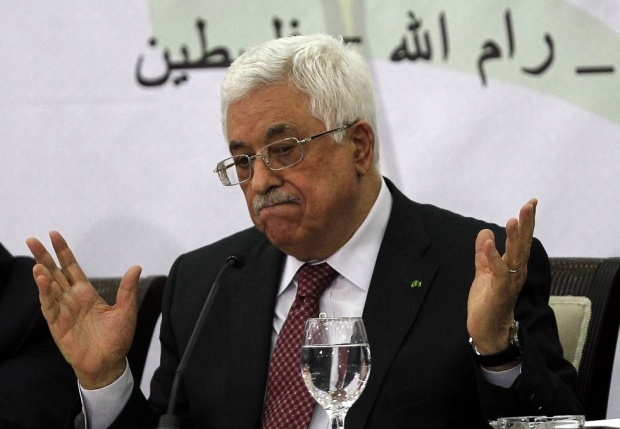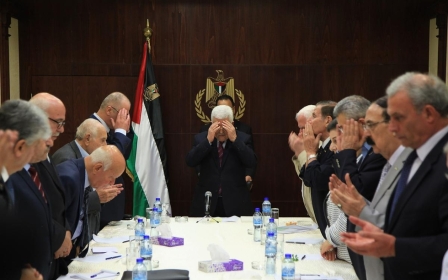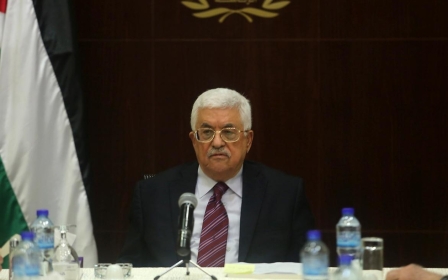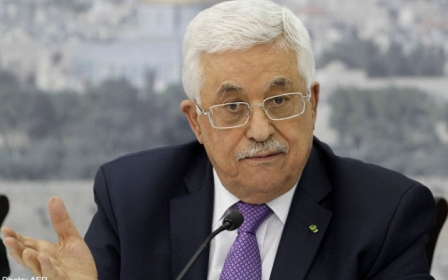Preparing for post-Abbas Palestinian politics

In the light of the 1991 Madrid Conference, aimed at reviving the Israeli-Palestinian peace process, and based on the principle of land for peace, then PLO president Yasser Arafat began to pull power from the Palestine Liberation Organisation and move it to the emerging Palestinian National Authority.
At that time, several new institutions and centres of authority were created, such as a parliament and a government, and embassies were transferred to be under the mandate of the ministry of foreign affairs. Additionally, several financial, administrative and political positions were pushed to the surface.
The PLO functioned with the minimum resources, and its presence was limited just to a glass office on the south-eastern side of al-Muqata’a (the Palestinian Authority headquarters in Ramallah).
Israel in general, and Prime Minister Benjamin Netanyahu’s governments in particular, repressed the PA’s authority and limited the role of the security bodies, while besieging PA ministries in “A” classified areas - that is, those designated to be under the full civil and security control of the PA - and, in time, started invading these areas.
Not only that, but it reached a phase where even the pass permit for PA President Abu Mazen (Mahmoud Abbas) was published on social media websites. PA ambassadors were banned from travelling outside the country and parliamentarians were arrested.
Nearly all the features of PA power were attacked alongside attacks on the economic front, with a wall being built around the West Bank and another around Jerusalem. The result was a weak PLO and a weak PA.
Regardless of all the parties’ statements, whether by those inside or outside the PLO, concerning the upcoming assembly of the PLO National Council on 14 September and the election of a new executive committee, President Abbas has decided to restore the PLO to its full power and authority and eliminate the maximum possible authority of the PNA.
The reason is because the PA survives at the mercy of the occupation, while the PLO is the sole legal representative of Palestinians and its institutions are distributed all over the world, making it impossible for Israel to impose restrictions or control on its functioning.
Abu Mazen will not nominate himself for the elections of the executive committee chairperson and most probably will not nominate himself for any other positions. I believe that he is so motivated to restore power to the PLO (without the participation of Hamas) before he leaves the posts, including that of PLO chairman, he occupies at present.
When we asked him about this issue, he smiled and said: “It is good to have a predecessor president in Palestine [meaning himself].” The president has started to prepare Arab leaders and kings to understand that fact.
A last point regarding the existence of other strong factions and who will succeed Abu Mazen as president: I think he has started to bring friends of PLO Central Council member Marwan Barghouthi closer to the decision-making circles.
In order to guarantee that other factions will not impose control on the PA and Fatah (the PLO’s largest faction), he is giving clear and strong gestures and messages that Barghouthi is the common factor among all these factions.
- Nasser Lahham is the editor-in-chief of Ma'an News Agency, (http://www.maannews.com), based in the occupied West Bank.
The views expressed in this article belong to the author and do not necessarily reflect the editorial policy of Middle East Eye.
Photo: Palestinian Authority President Mahmoud Abbas gestures as he gives a speech during a meeting with PLO's Central Council in the West Bank city of Ramallah on 26 April, 2014 (AFP).
New MEE newsletter: Jerusalem Dispatch
Sign up to get the latest insights and analysis on Israel-Palestine, alongside Turkey Unpacked and other MEE newsletters
Middle East Eye delivers independent and unrivalled coverage and analysis of the Middle East, North Africa and beyond. To learn more about republishing this content and the associated fees, please fill out this form. More about MEE can be found here.





